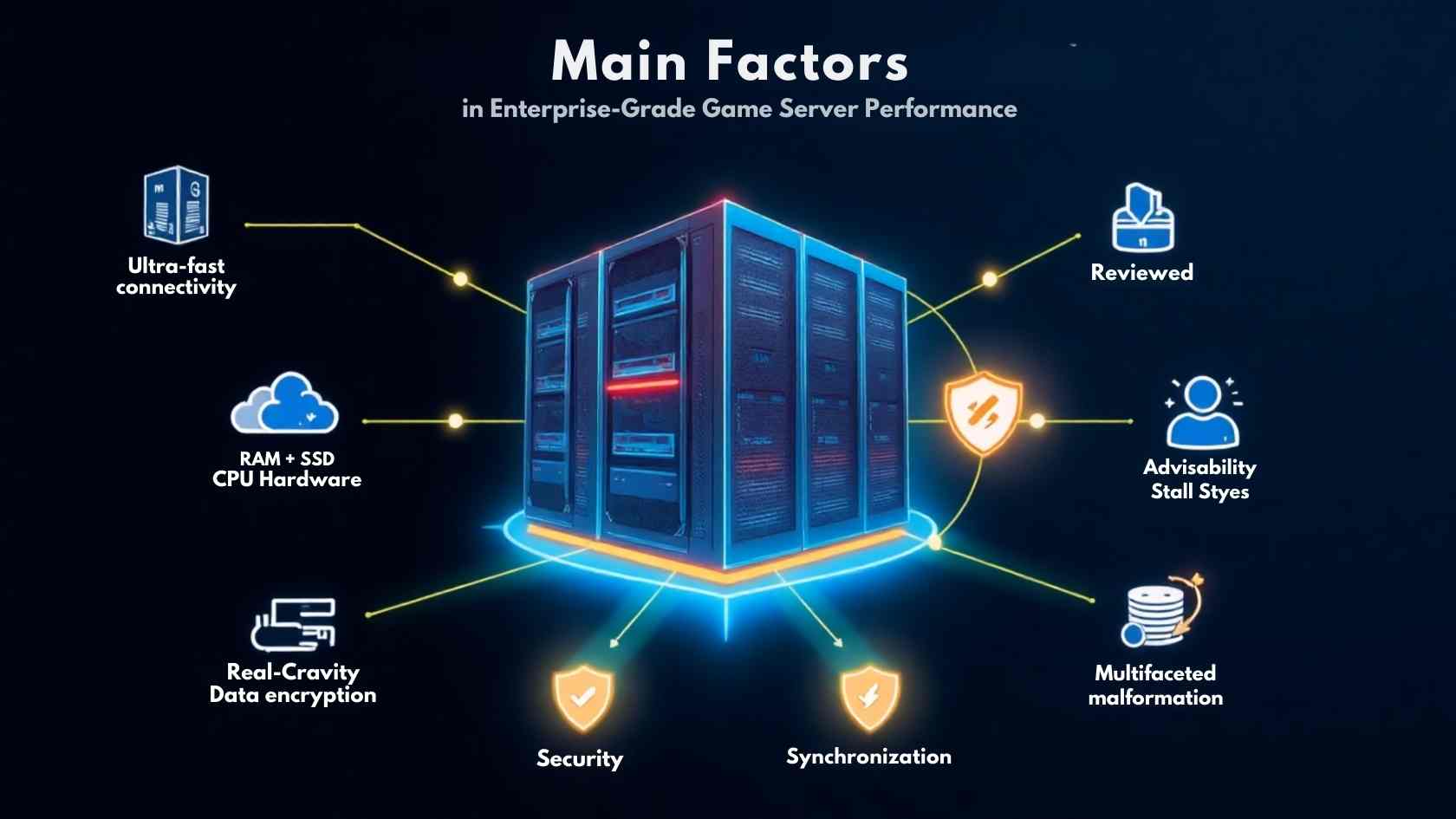The aspects of Gaming infrastructure are being converted with the upgradation of the Software as a Service (SaaS) into Gaming as a Service (GaaS). Players around the world are the driving force behind the need to have low-latency, scalable and secure game servers. Contemporary hosting services such as Godlike Host should be able to deal with traffic spikes, have minimal ping, and sustain uptime. Distributed data centres, auto scalability and tiered DDoS protection are being implemented using enterprise-grade architectures.
Its performance is gauged by the latency, availability and flexibility instead of the marketing claims. Since cloud networking, 5G growth and AI-driven composition are developing. GaaS usage is being promoted as the norm for connecting entertainment worldwide.
What is GaaS and Why It Matters?
Gaming as a Service is a cloud-based solution for games that are hosted, processed and delivered solely to the remote servers. Full-featured gaming experiences are available to players on nearly any device that does not depend on substantial local hardware.

GaaS reduces the costs and complexity of virtual infrastructure management that a developer faces. Roll out updates, scaling is dynamic and global reach is simplified. To the gamers, GaaS offers no waiting, reduced download times and continuous operations regardless of heavy traffic.
The transition is monumental to both indie and big studios. Indie developers are also able to roll out multiplayer games at a global scale without building big servers. AAA studios are able to release worldwide at the same time without concerns related to the server load worldwide.
Examples in the real world of cloud gaming systems such as Xbox Cloud Gaming, NVIDIA and GeForce NOW. Always-online worlds that entirely run on distributed servers. GaaS is now frequently used by popular battle royale games and huge RPGs, and supports millions of daily active players.
The Technical Demands of Modern Game Hosting
Performance-sensitive factors typically go unseen by the player and defy the current online gaming environment.
- Latency and Ping: Games in which one competes with each other can be won or lost in several milliseconds. Even the slightest delay has certain implications on the reaction time and satisfaction among the players.
- Player Volume: Most games can support millions of simultaneous users. This is particularly true at launch or other times of great seasonal updates.
- Traffic Spikes: This can be the result of viral moments, in-game events or eSports tournaments before the surge in demand is predictable.
- Server Location: The nearer to a server, the better the connection will be; therefore, it is essential to distribute servers globally.
To address such requirements, hosting service providers have to integrate network optimisation and smart routing, which makes it easy for players by directing them automatically towards the nearest server.
Main Factors in Enterprise-Grade Game Server Performance

- Uptime and high availability enterprise hosting targets 99.999 percent uptime. Downtime becomes a hurdle for players to trust and potentially wrecks communities by losing uptime, resulting in the risk of losing players. This will take over hosting server systems, like load balancing and geographically distributed backups.
- Scalable infrastructure is capable enough to increase the demand rapidly. Scaling outside this cloud-native is possible; however, there could be a compromise on the performance when the resources are increased or scaled down. Automated elasticity regulations react within seconds to prevent lag spikes.
- Advanced security gaming servers are commonly attacked by DDoS/data breaches, and even cheaters. Enterprise security contains real-time viewing, intrusion detection, encrypted traffic and a multi-layered firewall. Performance monitoring is at the top of the list, which is constantly monitored to maintain smooth gaming on all zones.
Closer look at Godlike Host
Unlike other host server providers who claim to have enterprise-quality service, Godlike Host can show the idea of how it works.
- Latency Optimisation: Locations of data centres around the world and routing protocols slash the ping down to remarkable levels. The edge of the servers can help to bring processing much better, so that the player doesn’t have delay problems.
- Scalability When You Need It: Cloud implementation offers real-time scaling to respond to player demand, so that performance can be maintained in the event of unexpected growth.
- Security-First Approach: The AI technology-based threat detection, anti-DDoS systems and encrypted channels ensure the security of both known and emerging threats.
- Global Presence: To provide regional players in different continents like Asia, Europe and America with a similar set of performance, where the data centres are present in different continents.
Godlike Host’s approach shows how modern GaaS hosting can meet the technical, security, and scalability needs of both indie developers and AAA studios without compromise.
The Future of GaaS

It is a growing service that will change and evolve new technologies.
- 5G and Beyond: With speeds of a new generation of mobile networks, cloud gaming will become a possibility on more devices, including smartphones as well as VR headsets.
- Artificial Intelligence Integration: There will be intelligent load balancing, predictive scaling and better matchmaking.
- Sustainable Infrastructure: The increase in the number of providers that will use renewable energy to power data centres to ensure that fewer resources are used and that negligible impacts on the environment.
- The Immersive Worlds: VR and AR games will require an even smaller latency and bandwidth, and the hosting solutions should become faster and smarter.
- Interoperability: Cross-platform gaming will be the new one, which will require servers to support an array of devices and operating systems easily.
Such innovations will cause game hosting to move out of the competitive stage and to the baseline requirement of enterprise-calibre game hosting.
Also Read: Bright Data Alternatives: Unlocking Superior Proxy Solutions
Conclusion
Structural change in gaming infrastructure has witnessed the shift of provision from SaaS to GaaS. Game makers can release worldwide without needing to buy costly equipment. The gamers have better, quicker and easier experiences. Hosting is no longer optional. Enterprise-grade hosting like ‘Godlike Host’, which is competitive, scalable and secure to play in 2025 and beyond. And when you get latency, scalability and security designed to perfection, as is the case on Godlike Host. It is not only better games that are produced, but a better way to play.










